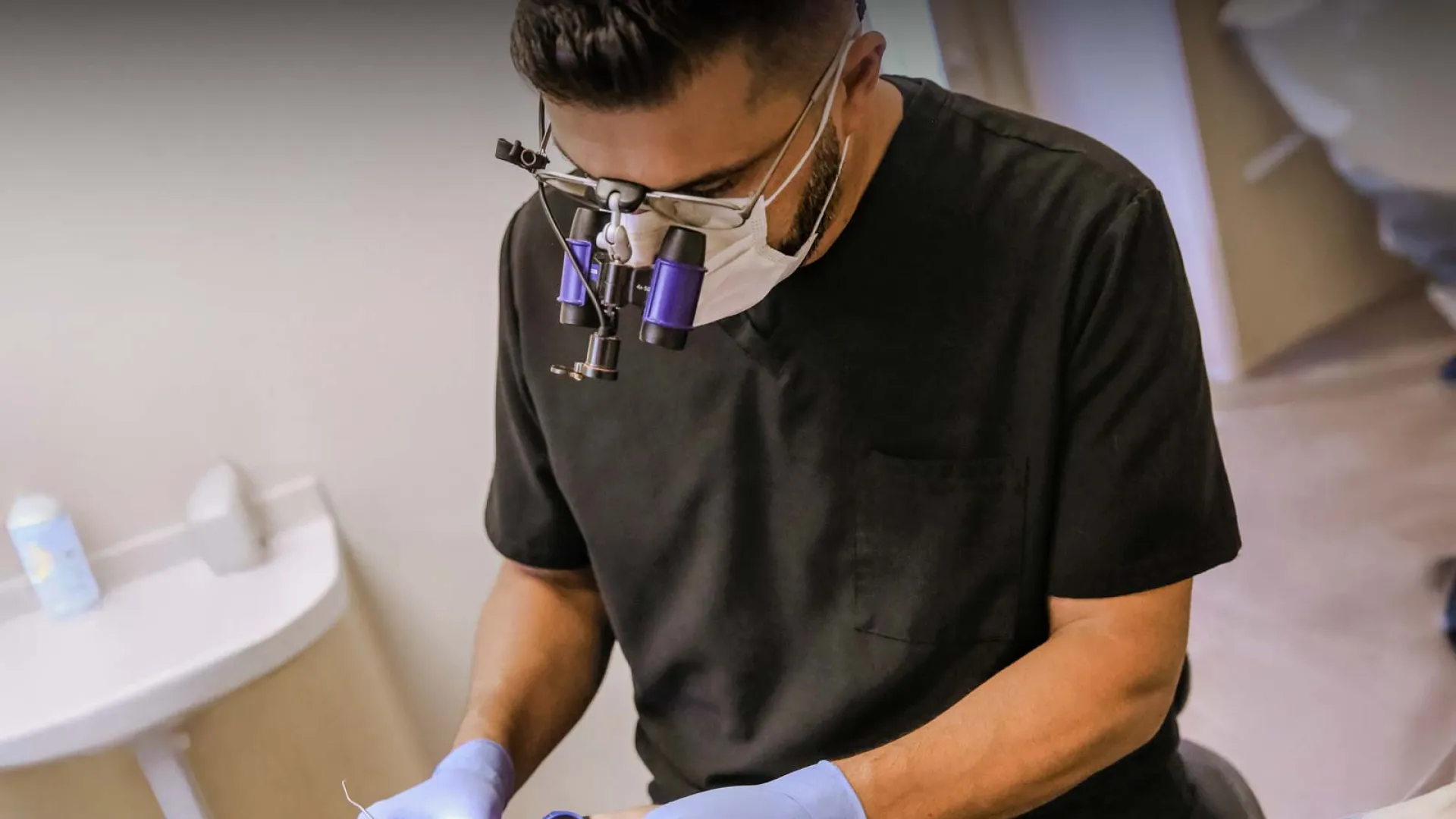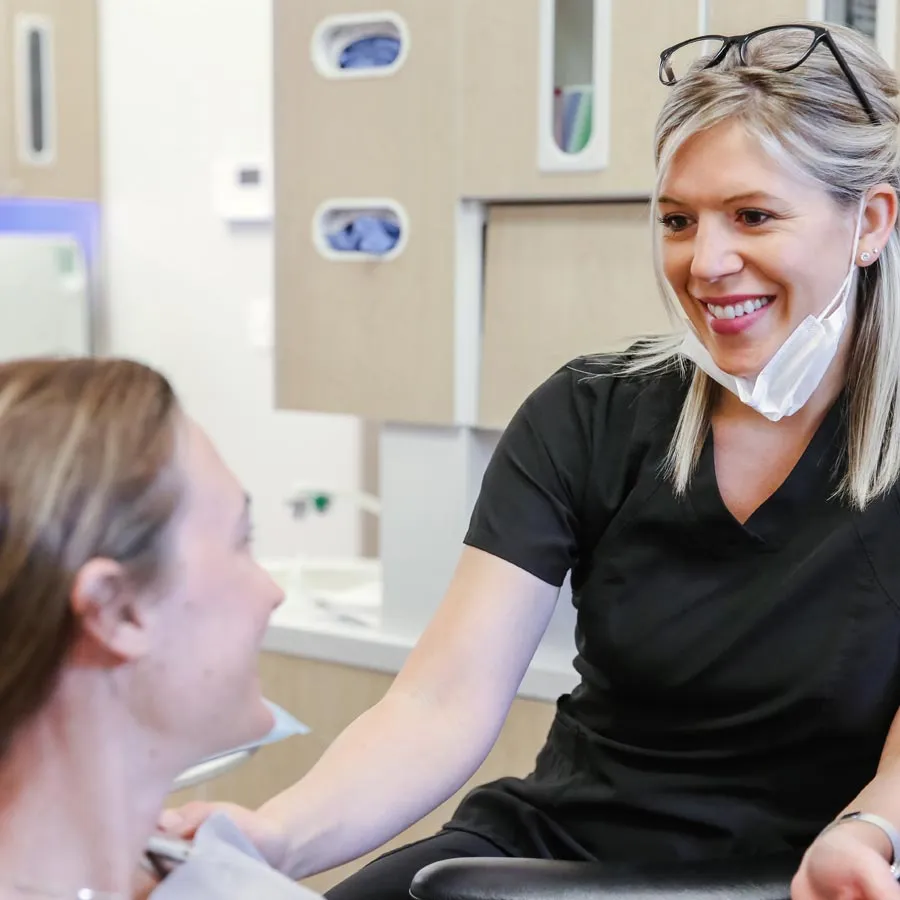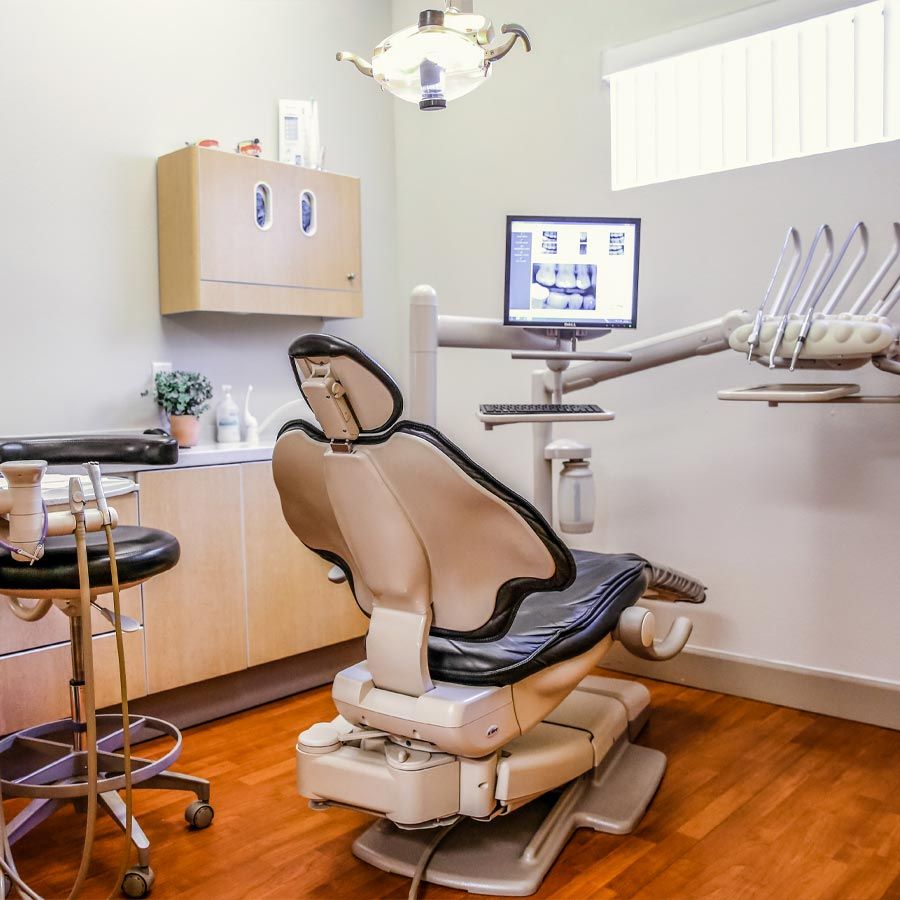
Oral Surgery
Restore Your Oral & Overall Health

Preserve Your Dental Health With Oral Surgery in Portland
Sometimes, maintaining a healthy, functional smile requires more than preventive care. If you need oral surgery in Portland, you deserve treatment that's gentle, precise, and focused on protecting your long-term health. Dr. Kaady brings years of advanced training and a holistic philosophy to every procedure. With our surgical treatment, you can:
- Stay relaxed and comfortable with your choice of gentle sedation options
- Feel confident in your care and experience precise results
- Make informed decisions based on clear and compassionate communication
- Experience better outcomes through techniques that prioritize your overall health
- Trust that your long-term well-being is at the center of our surgical care
Schedule your consultation today. We're here to guide you with skill, compassion, and a focus on your whole-body wellness.
Take the Next Step Toward a Healthier Smile

The idea of dental surgery can feel overwhelming. That's why Dr. Kaady and our compassionate team go beyond standard care to create a calm, supportive experience. From your first visit, you'll notice our commitment to biological dentistry. We combine advanced technology, gentle techniques, and a focus on healing to protect your health at every stage.
To ensure a comfortable, stress-free procedure, we offer two safe, effective sedation options:
- Inhaled Sedation - Gentle laughing gas helps you relax almost instantly. It will ease anxiety while allowing you to remain awake and responsive. This light sedation supports a calmer experience without lingering effects.
- Oral Conscious Sedation - For deeper relaxation, Dr. Kaady may prescribe an FDA-approved medication to be taken before your appointment. You'll remain conscious but feel profoundly calm, so even complex treatments feel manageable.
We provide two primary types of oral surgery here in our office:
- Tooth Extractions - Saving your natural teeth is always our first priority. However, if a tooth cannot be preserved, Dr. Kaady performs minimally invasive extractions.
- Wisdom Teeth Removal - If your third molars have fully erupted and are not impacted, we can safely remove them in our office. For complex or impacted cases, we'll coordinate your care with trusted specialists.
Throughout every step of your surgical experience, we'll empower you with education, supported by biological techniques that encourage better overall health.
If you need oral surgery in Portland, you deserve care that considers and supports the broader picture of your overall well-being. Contact Bridgetown Dental today to schedule your consultation.
Common Questions About Oral Surgery
When can I exercise after oral surgery?
To support the best possible healing after your oral surgery, it's important to rest during the first 24 hours. Physical activity, even mild exercise, can increase your heart rate and blood pressure, potentially dislodging the protective blood clot from the surgical site. This can lead to a painful condition known as dry socket and delay your recovery. After the initial day of rest, you can gradually return to gentle, low-impact activities such as walking.
Does oral surgery cause jaw pain?
It's normal to experience some jaw soreness or tenderness after oral surgery, especially as your body begins the healing process. This discomfort is usually mild and temporary, and it gradually fades over the next several days. Oral surgery is often performed to resolve underlying issues. As you heal, you can expect to feel significantly better than before your procedure. Our team will guide you through personalized aftercare steps.
At what age should you have wisdom teeth removed?
Most people benefit from having their wisdom teeth extracted during their late teens or early 20s. At this stage, the roots are often not fully formed, making surgery easier and with fewer complications. It also helps prevent issues like overcrowding, impaction, or damage to nearby teeth. Some individuals may need wisdom teeth removed earlier or later depending on their development, symptoms, and anatomy.